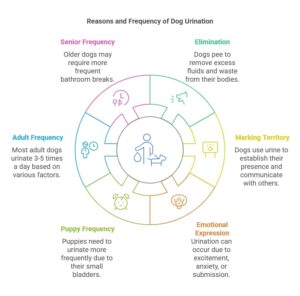When it comes to choosing a canine companion, small dog breeds are a popular choice for many. They are not only adorable and easy to cuddle, but they also fit well in various living spaces, making them perfect for apartment dwellers. Whether you’re a first-time dog owner or looking to add a new furry friend to your family, here's everything you need to know about small dog breeds.
Popular Small Dog Breeds

- Chihuahua
- Personality: Confident, courageous, and loyal.
- Size: 2-6 pounds.
- Lifespan: 12-20 years.
- Fun Fact: Chihuahuas are known for their big personalities packed in a tiny body!
- Pomeranian
- Personality: Lively, playful, and friendly.
- Size: 3-7 pounds.
- Lifespan: 12-16 years.
- Fun Fact: Pomeranians have a luxurious double coat that comes in a variety of colors.
- Yorkshire Terrier (Yorkie)
- Personality: Affectionate, energetic, and feisty.
- Size: 4-7 pounds.
- Lifespan: 11-15 years.
- Fun Fact: Yorkies have silky, human-like hair, making them hypoallergenic.
- French Bulldog
- Personality: Adaptable, playful, and smart.
- Size: 16-28 pounds.
- Lifespan: 10-12 years.
- Fun Fact: French Bulldogs have charming bat-like ears and a lovable snort.
- Dachshund
- Personality: Curious, brave, and independent.
- Size: 16-32 pounds (Miniature Dachshunds are 11 pounds or less).
- Lifespan: 12-16 years.
- Fun Fact: Dachshunds are also known as “wiener dogs” due to their long, sausage-like body.
Advantages of Small Dog Breeds
- Apartment-Friendly: Small dogs require less space, making them ideal for apartment living.
- Lower Food Costs: They eat less compared to larger breeds, which can save you money.
- Travel-Friendly: Small dogs are easier to transport and often welcomed in more places.
- Longevity: Many small breeds tend to live longer than larger breeds, providing years of companionship.
Caring for Small Dogs
- Exercise: Despite their size, small dogs need regular exercise to keep them healthy and happy. Short walks and playtime are usually sufficient.
- Diet: Ensure they have a balanced diet tailored to their size and age. Small breeds may have specific dietary needs, so consult your vet.
- Training: Start training and socialization early. Small dogs can sometimes be stubborn, so patience and consistency are key.
- Health: Regular vet check-ups are essential. Keep an eye out for breed-specific health issues and maintain good dental hygiene.
Frequently Asked Questions (FAQs)
Q: What is the best small dog breed for families with children? A: Breeds like the French Bulldog and Dachshund are known for their affectionate and patient nature, making them great choices for families with children.
Q: Are small dog breeds good for first-time dog owners? A: Absolutely! Breeds like the Pomeranian and Yorkshire Terrier are friendly and relatively easy to care for, making them excellent choices for first-time dog owners.
Q: Do small dogs require a lot of grooming? A: It depends on the breed. For instance, Yorkies need regular grooming due to their long hair, while Chihuahuas have short coats that require less maintenance.
Q: Can small dogs live in apartments? A: Yes, small dogs are perfect for apartment living as they don't require as much space and are easier to manage in confined areas.
Q: How much exercise do small dog breeds need? A: While they don’t need as much exercise as larger breeds, small dogs still require daily walks and playtime to stay healthy and happy.














